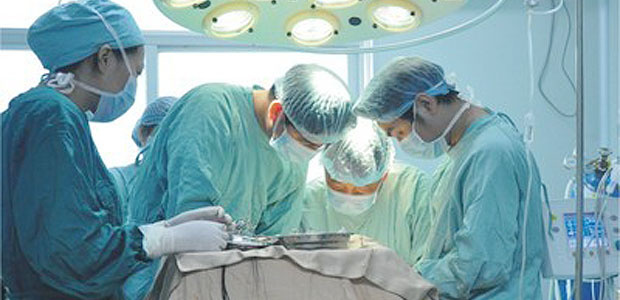
According to the latest statistics from the World Health Organization (WHO) International Agency for Research on Cancer (IARC), nasopharyngeal cancer has developed obvious racial differences and usually occurs in the yellow race (Indonesia, Malaysia, Thailand, Vietnam, the Philippines, China). While most of the other regions, including Europe, the Americas, Oceania and other white people countries, the incidence of nasopharyngeal cancer is much lower than those countries above.
Liang Feilv, oncologist from St. Stamford Modern Cancer Hospital Guangzhou said, “For 70% -80% of patients with nasopharyngeal cancer, surgical resection is always not the first choice. The reasons are as follows.”
1. Special location: Nasopharyngeal cavity is just in the middle of the cranial, with vertical diameter of only 5.5-6.0 cm, which is secluded and hidden. Besides, nasopharyngeal cavity is narrow, with arteries, veins and lymphoid tissue and other important tissues and organs on both sides, so it is easy to destroy these important organs under surgical resection.
2. Rapid pathological changes of nasopharyngeal cancer bring difficulties and limitations to surgical operation: about 70% -80% of patients with nasopharyngeal cancer are already diagnosed as middle or advanced stage, following by neck lymph node and liver metastases, with metastasis rate of up to 60% -80%. It is very difficult to conduct surgical resection on these parts.
Therefore, in Indonesia, Malaysia, Vietnam and other Southeast Asian countries, many patients with nasopharyngeal cancer once diagnosed, traditional radiotherapy and chemotherapy as well as traditional Chinese medicine treatment have become their preferred therapies.
However, Dr. Liang indicated that traditional chemotherapy, injecting anti-cancer drugs through veins in the body, would kill the tumor cells while at the same time damage the normal cells and tissues, contributing to hair loss, vomiting, physical weakness and other side effects. For many patients with middle or advanced nasopharyngeal cancer, they prefer to take traditional Chinese medicine treatment due to the fear of side effects from systemic chemotherapy. However, although some Chinese medicine will delay the deterioration of the cancer, a single treatment is difficult to achieve radical effects and even miss the best time to cure patients with nasopharyngeal cancer. Combination of Traditional Chinese Medicine and Western medicine and other minimally invasive treatments are the best treatment for nasopharyngeal cancer patients. Minimally invasive therapy such as interventional therapy, freezing, microwave ablation and other treatment features small trauma, quick recovery and few side effects, greatly avoiding harm to patients and achieving the best therapeutic effect with the help of Chinese medicine.
*Surgery, in addition to the appropriate chemotherapy and radiotherapy, are effective in treating early cancer, but certain patients in late stage of cancer may not be tolerate surgery well as they can be relatively weak. A combination of carefully planned minimally invasive therapy, chemotherapy or radiotherapy can effectively reduce the side effects and discomfort of treatment and may help patient get better efficacy.













 viber
viber